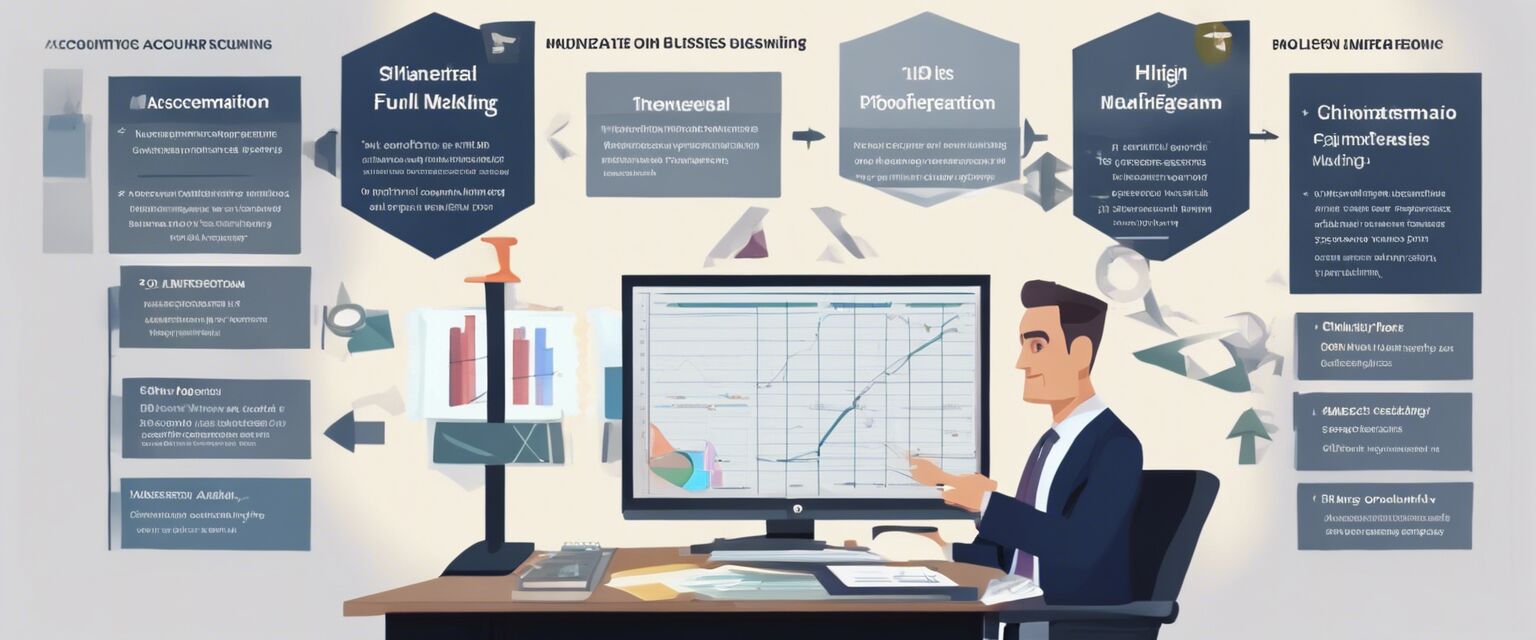
Managerial Accounting: The Key to Informed Business Decision-Making
Managerial accounting plays a vital role in business decision-making and performance analysis. It provides stakeholders with financial insights to make informed decisions, optimize operations, and drive growth.
Key Takeaways
- Managerial accounting focuses on internal decision-making and performance analysis.
- It provides financial insights to stakeholders to make informed decisions.
- Managerial accounting is used to optimize operations, manage costs, and drive business growth.
What is Managerial Accounting?
Managerial accounting, also known as management accounting, is a branch of accounting that focuses on providing financial information and insights to internal stakeholders, such as managers and executives. Its primary goal is to support informed decision-making, optimize business operations, and drive performance improvement.

The Role of Managerial Accounting in Business Decision-Making
Managerial accounting plays a critical role in business decision-making by providing stakeholders with relevant financial information and insights. This includes:
- Cost analysis and management
- Performance measurement and evaluation
- Budgeting and forecasting
- Financial analysis and reporting
Types of Managerial Accounting Reports
Managerial accounting reports provide stakeholders with valuable insights into business performance and operations. Some common types of reports include:
| Type of Report | Description |
|---|---|
| Financial Performance Report | Provides an overview of financial performance, including revenue, expenses, and profit margins. |
| Operational Efficiency Report | Evaluates the efficiency of business operations, including productivity and resource utilization. |
| Cost Analysis Report | Examines the costs associated with producing goods or services, including material, labor, and overhead costs. |
Benefits of Managerial Accounting
Implementing managerial accounting practices can bring numerous benefits to a business, including:
Benefits
- Improved decision-making with accurate financial insights
- Enhanced operational efficiency and productivity
- Better cost management and control
- Increased transparency and accountability
Tools and Resources for Managerial Accounting
To implement effective managerial accounting practices, businesses can utilize various tools and resources, including:
- Financial software, such as accounting software, to streamline financial data management and analysis.
- Accounting stationery, such as ledgers and journals, to maintain accurate financial records.
- Bookkeeping accessories, such as calculators and pens, to support everyday financial tasks.

Conclusion
In conclusion, managerial accounting plays a vital role in business decision-making and performance analysis. By providing stakeholders with accurate financial insights and information, businesses can optimize operations, manage costs, and drive growth.

Beginners Section
New to managerial accounting? Start by implementing basic financial practices, such as maintaining accurate financial records and analyzing financial data. Explore our budget planning aids and tax tools to support your financial management journey.








